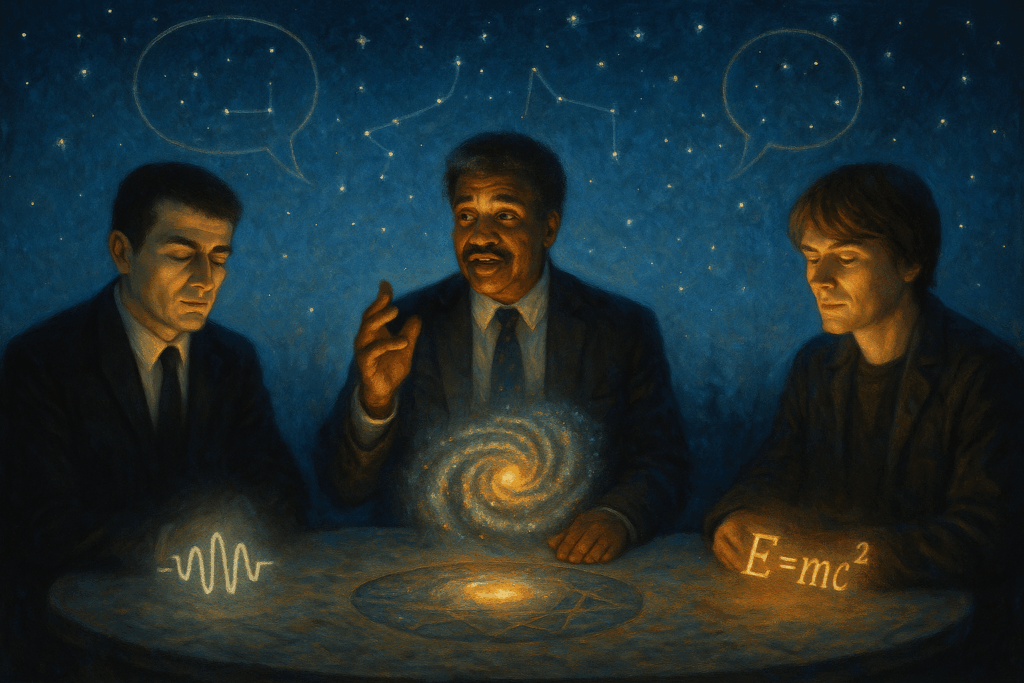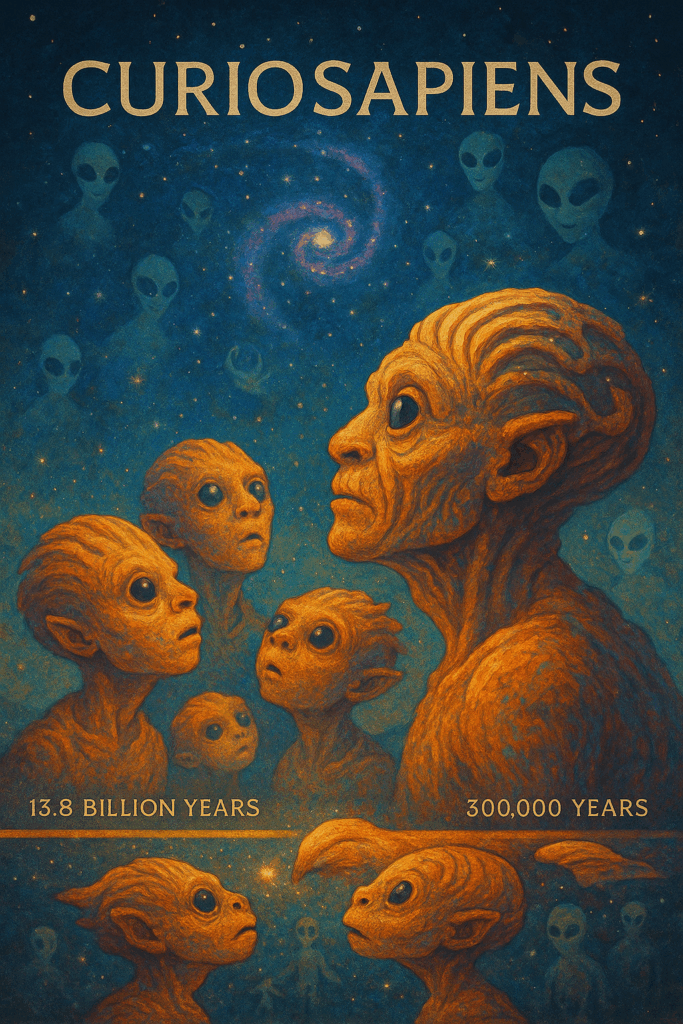There are questions you expect on a sunny Dutch playdate. Juice flavors. Lego injuries. Whose turn it is on the trampoline. But this one came out of nowhere:
“Who’s your favorite scientist?”
Five engineering dads, five kids. And suddenly, the playground morphed into something else—a stage for something quietly profound. Like we’d been handed a telescope and told to aim it inward.

One great dad and dear friend, a chemical engineer, leaned toward Newton. Another had helped build structures that might’ve brushed the edge of the atmosphere. TU Delft came up. Geopolitics. PhDs.
Me? I dropped out of Computer Science from The Hague University. But still—this stuff thrills me. Quantum mechanics. Consciousness. Simulation theory. Philosophy. I’m not a scientist. But I orbit them.
And as each dad gave his answer—Einstein, Newton, maybe Heisenberg—I stalled.
Not because I didn’t have one. But because I had too many.
Roger Penrose & the Curious Constraint
What I wanted to say was Roger Penrose. Not Rosen—though that slip led me down a rabbit hole later, where I found out there’s even a Rosen who helped shape early AI.

Penrose is the kind of mind that doesn’t stay put. He stretches mathematics into philosophy, spacetime into human thought. At 93, he’s still willing to ask what most won’t: could consciousness be non-computational? Could there be something fundamentally unknowable inside our knowing?
That takes guts. And grace. And I admire it.
Donald Hoffman & the Great Interface
Then there’s Donald Hoffman—the evolutionary cognitive scientist who basically says: what we perceive as reality is a carefully tuned hallucination. A user interface. We evolved not to see the world as it is, but as it’s useful for survival.

He compares it to a VR headset. Pixels, icons, and metaphors instead of particles, laws, and truth. Reality, but gamified. Life as UX design.
To me, that makes more sense than I care to admit.
Lex, Neil & Brian: The Translators
I mentioned Lex Fridman—his quiet, MIT-meets-Spotify vibe brings an almost meditative depth to modern discourse.
While journailing, I realized I was probably channeling Neil deGrasse Tyson, the grand narrator of the cosmos who gives gravity to wonder without losing the joy.
And in editing, I can’t help but add Brian Cox—the poetic physicist whose soft-spoken awe transforms equations into symphonies.

They’re not just scientists. They’re translators. That matters too.
What Do These Choices Say About Me?
Here’s where I asked my AI to profile me. What do these choices say?
- Penrose: I admire minds that challenge the boundaries of their field—and their own thinking.
- Hoffman: I believe perception isn’t just flawed—it’s beautifully deceptive by design.
- Fridman, Tyson & Cox: I think science needs storytellers. And I want to be one.
I’m not a scientist. But I’m science-minded. Not into proofs—but into patterns.
I think in frameworks. I wonder in metaphors. I navigate by asking.
Maybe I’m just trying to stitch wonder to language.
From Sandbox to Stars
Later, on WhatsApp, I clarified my pick: Penrose, not Rosen. And thought, maybe I should’ve also mentioned Van Leeuwenhoek. Or even brought up the 5,000 new species recently discovered at the bottom of our own ocean.
We search the stars for life. But forget the other direction. Downward. Inward.
If we’re alone, maybe it’s not about space. Maybe it’s about timing. If the universe is 13.8 billion years old, and anatomically modern humans have been around for roughly 300,000 years, that’s like blinking and missing every other intelligent civilization. Aliens might not be absent. Just… asynchronous.

Still, we keep looking. Keep asking.
Even at playdates.
Because sometimes, the biggest thoughts emerge between juice boxes and jump ropes.
And maybe, just maybe, we’re all part of a new taxonomy. Beyond scientists. Beyond philosophers.
Curiosapiens.
Those who orbit wonder. Who don’t need answers to be awed.
Who pause mid-sentence, mid-soccer, mid-school-run… and quietly ask the cosmos:
“Why?”
What's on your mind?